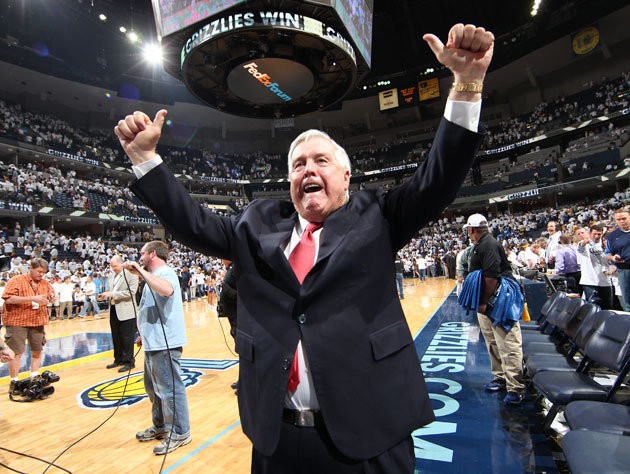
Amid all the distasteful soap opera and horrific racism surrounding the distasteful case of now-banned L.A Clippers owner Donald Sterling, it is helpful to be reminded, by virtue of a very sad coincidental event, that some of the traditional
American virtues have also been very well-represented in the National Basketball Association (NBA).
That reminder came with the news, almost simultaneous with the Sterling scandal, of the death of Michael Heisley, who bought the under-performing Vancover Grizzlies in 2000 and shortly thereafter moved them to Memphis, where, as a properly reverential obituary in The New York Times noted, he “revitalized the franchise.”
That is to say the least. Heisley presided over two different renaissance eras for the relocated Grizzlies — one roughly a decade ago, when the Grizzlies, led by venerable coach/analyst Hubie Brown and starring the likes of Shane Battier and Pau Gasol, made their first foray into the NBA post-season playoffs. Heisley’s attendant coaxing of NBA great Jerry West to become the Grizzlies’ general manager during that era was in itself also a great boost to the self-respect of the team and its host city.
Some lean years came, and it took a few years for Heisley to rebuild the franchise a second time, but, while the current ownership group led by Robert Pera has made some astute moves of its own, the creation of the Grizzlies’ current core group of Marc Gasol, Zach Randolph, Tony Allen, and Mike Conley was all done on Heisley’s watch, with the able assistance of his next general manager, Chris Wallace. Some of that required real prescience — notably a complex trade of the senior Pau Gasol, already a star, to the Los Angeles Lakers. A proviso of that trade resulted in brother Marc landing with the Grizzlies. Not many people saw it coming, but Marc Gasol is, and is likely to remain the bigger star now.
As the Times noted, Heisley had made a career of rehabilitating various businesses, and the application of his expertise to the Grizzlies basketball extended to the organization’s off-court and off-season activities. Both the Grizzlies Academy for disadvantaged students and Grizzlies House, a hostel for families of patients at St. Jude Children’s Research Hospital, are visible signs of Heisley’s determination to make the Grizzlies franchise a leader in charitable activity, as well. In every sense of the phrase, Heisley put Memphis in the big leagues.
There were misses on Heisley’s part — notably his decision a few years back to give a lucrative contract to Allen Iverson, a lapsed and self-absorbed hero whose tenure here was blessedly short. But, as they say, you can’t win ’em all. It’s true in life as it is in athletics. But it is fair to say that Michael Heisley, who sold the Grizzlies to Pera et al. in 2012, not only created a winner, he was himself a winner. Memphis owes him a debt of gratitude.